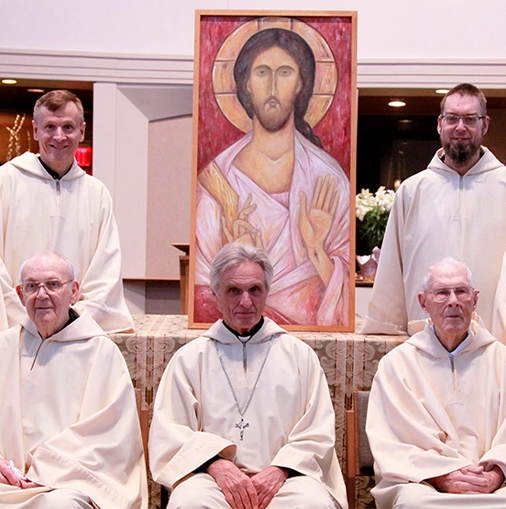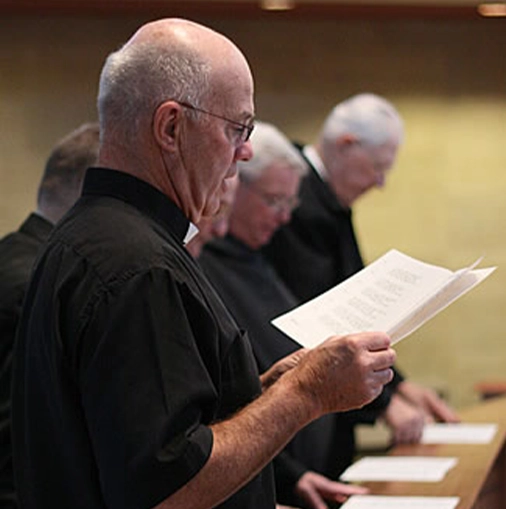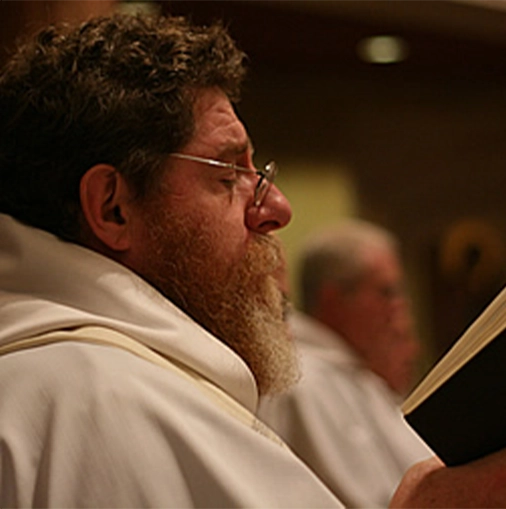VOWS
A monastic life is a life dedicated to the search for God.

vows
An individual monk comes to the monastery for assistance in this search.
One of the basic tenets of searching for God and a basic step along the path to finding what is being sought is to intentionally lose the aspects of self that prevent success in this endeavor. The monastic vows are an aid in losing these aspects of self. Benedictine monks take three vows—obedience, stability, and conversatio morum.
Obedience is the vow in which the monk dedicates himself to listening to others more than to self. The word itself comes from the Latin word meaning ‘to listen.’ Listening is established by St. Benedict in the beginning of the Rule when he opens the prologue with the phrase, “Listen, child of God, to the guidance of your teacher…” The monk vows to listen for the word of God in all the varied aspects that it may take—scripture, nature, Tradition, the Rule, the community, and the words of others especially the Abbot and elders of the community. In choosing to listen in this manner the monk practices emptying space in his heart into which God may become ever more present.
Benedictine monks vow stability to the community in which they choose to live. This vow helps the monk persevere in the search for God. The promise is that the monk will stay with the other members of the community for mutual support in searching. While an individual monk may at times become discouraged in his search for God, the vow of stability helps him see that others are searching as well and have a sense of the proper direction for that search.
Conversatio Morum is a hard-to-translate Latin term for the third vow a monk makes as an aid to searching for God. This term has been loosely translated as ‘conversion of morals’ and also as ‘fidelity to the monastic life.’ Both translations get close to what is involved in fulfilling the vow, yet each also leaves certain things out. This is a vow of life that does include a dedicated effort to change in personal behavior. It is also an acceptance of the way in which monks have traditionally practiced this effort to change—the asceticism of the monastic desert—which includes such things as poverty, chastity, and silence.




